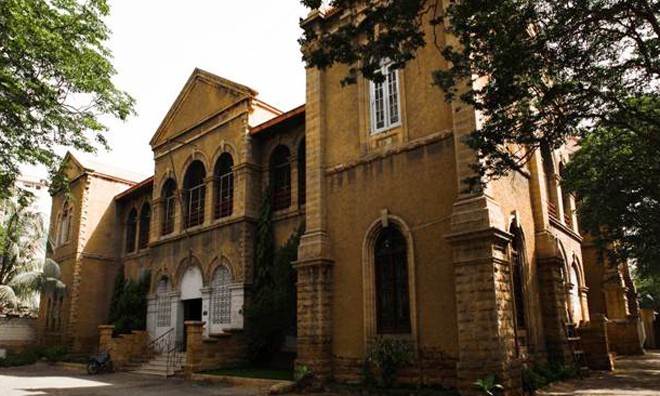

A walk through the crowded lanes of Karachi’s Saddar neighbourhood can bring back images of a once-thriving community that now lives inside closed doors -- the Goans.
The walk, however, has to be steady and you should have the ability to ignore the endless cacophony of traffic around you and look for names of shops and buildings that reflect a forgotten past. These are inanimate symbols that take time to vanish unlike people who built them.
But if you are lucky, you might even come across some old lady in a long skirt, her face scrunched up in irritation as she struggles to cross the road amid heavy traffic.
And if you a catch a glimpse of a person of this description, which is rare but possible, you have, in all likelihood, spotted a Goan woman, whose ancestors helped make a slumbering fishing village called Kurrachi into a thriving metropolis of South Asia we call Karachi.
Children of Portuguese ancestors, the Goans of Karachi have always maintained a distinct identity in the city despite being small in numbers.
The community was known for producing musicians and many credit them for bringing the swinging 1960s trend of western music bands in Pakistan. "We were crazy about food and music and everything that lights up a day," says Desmond Vas, an octogenarian Goan, who lives in Garden East, a neighbourhood not far from Saddar and was previously known as Cincinnatus Town. "Back in the days, every Goan household used to have a musical instrument in the house. Music was our life."
A glimpse of sepia-tinged photographs of Karachi’s cultural scene from those days is hardly without a Goan man or woman holding a musical instrument.
But western music was only a part of what the Goans had given to Karachi. Their contribution in the planning and development of the city is second only to Parsis, says Yasmin Lari, renowned architect and chief executive of Heritage Foundation. "The Goans were one of the few communities who made Karachi their own and build the city wholeheartedly. They held important positions during the British rule and came to the city in the mid-1800, when the government was laying railway tracks across the city. They were experts and worked with the British in the industry for a long time," she adds.
Lari says the community was at the forefront of building Saddar -- the commercial hub of Karachi.
However, today, the Goans, like most minorities in the city, live on the fringes of the city. The community leaders say that their dwindling numbers is by far the main reason for their withdrawal from the mainstream.
"I’d put the numbers of Goans in Karachi somewhere around 1,000 families," says Augusto Oliver, a member of the Karachi Goan Association (KGA), the biggest club for congregation for Goans in the city. "The times have changed; Karachi is no more the city it used to be," he adds.
Oliver says that unlike people belonging to other minority communities in the country, who left Pakistan due to their shrinking social space, the Goans left the country primarily for greener pastures. "When back in mid-1970s opportunities came up in Australia, some 300 families left in a few years and then when immigration for professionals opened in Canada, many more left," and continuing that "I must add, the shrinking space for non-Muslims in the city may have played a role, but it was certainly not the primary reason".
The community is mostly schooled in Christian Convents and their somewhat liberal social outlook, which lent freedom to women, has produced some of the top school teachers and office secretaries.
Many Goan women went on to build successful careers, like their male counterparts, and moved out of the country when better opportunity beckoned.
The families that remained in Pakistan have this nagging feeling of a ‘missed chance’. "Many regret that they did not apply for migration when it was easy," says Oliver. "If I be honest with you, Karachi is no more livable."
However, young men and women who are settled in the city and are doing well think otherwise. "You cannot separate Karachi from me," says Christopher D’ Souza, a 23 year Goan who works for an IT company. "I am a Karachiite and like any other Pakistani, I go through bouts of pessimism. I know for a fact that I have to keep my hope alive. I have to keep faith that things will once again change for better."
Today, blended in the wider Christian community to find strength in numbers, the Goan ethnic uniqueness and Portuguese linage is hardly public knowledge. But D’ Souza does not mind that. "I still go to the KGA to play table tennis. I know my people and they know me. We are already small in number. Does it really matter if people know your true beginnings or not? I don’t think it does."